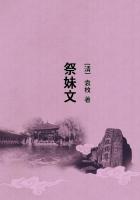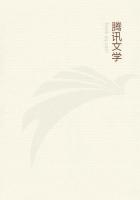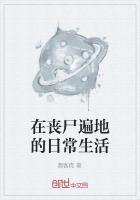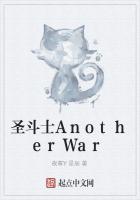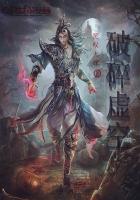As education -- of a certain sort -- the story had probably a certain value, though he could never see it. One seldom can see much education in the buck of a broncho; even less in the kick of a mule. The lesson it teaches is only that of getting out of the animal's way. This was the lesson that Henry Adams had learned over and over again in politics since 1860.
At least four-fifths of the American people -- Adams among the rest -- had united in the election of General Grant to the Presidency, and probably had been more or less affected in their choice by the parallel they felt between Grant and Washington. Nothing could be more obvious. Grant represented order. He was a great soldier, and the soldier always represented order.
He might be as partisan as he pleased, but a general who had organized and commanded half a million or a million men in the field, must know how to administer. Even Washington, who was, in education and experience, a mere cave-dweller, had known how to organize a government, and had found Jeffersons and Hamiltons to organize his departments. The task of bringing the Government back to regular practices, and of restoring moral and mechanical order to administration, was not very difficult; it was ready to do it itself, with a little encouragement. No doubt the confusion, especially in the old slave States and in the currency, was considerable, but, the general disposition was good, and every one had echoed that famous phrase:
"Let us have peace."
Adams was young and easily deceived, in spite of his diplomatic adventures, but even at twice his age he could not see that this reliance on Grant was unreasonable. Had Grant been a Congressman one would have been on one's guard, for one knew the type. One never expected from a Congressman more than good intentions and public spirit. Newspaper-men as a rule had no great respect for the lower House; Senators had less; and Cabinet officers had none at all. Indeed, one day when Adams was pleading with a Cabinet officer for patience and tact in dealing with Representatives, the Secretary impatiently broke out: "You can't use tact with a Congressman! A Congressman is a hog! You must take a stick and hit him on the snout!" Adams knew far too little, compared with the Secretary, to contradict him, though he thought the phrase somewhat harsh even as applied to the average Congressman of 1869 -- he saw little or nothing of later ones -- but he knew a shorter way of silencing criticism. He had but to ask: "If a Congressman is a hog, what is a Senator?" This innocent question, put in a candid spirit, petrified any executive officer that ever sat a week in his office. Even Adams admitted that Senators passed belief. The comic side of their egotism partly disguised its extravagance, but faction had gone so far under Andrew Johnson that at times the whole Senate seemed to catch hysterics of nervous bucking without apparent reason. Great leaders, like Sumner and Conkling, could not be burlesqued; they were more grotesque than ridicule could make them; even Grant, who rarely sparkled in epigram, became witty on their account; but their egotism and factiousness were no laughing matter. They did permanent and terrible mischief, as Garfield and Blaine, and even McKinley and John Hay, were to feel. The most troublesome task of a reform President was that of bringing the Senate back to decency.
Therefore no one, and Henry Adams less than most, felt hope that any President chosen from the ranks of politics or politicians would raise the character of government; and by instinct if not by reason, all the world united on Grant. The Senate understood what the world expected, and waited in silence for a struggle with Grant more serious than that with Andrew Johnson. Newspaper-men were alive with eagerness to support the President against the Senate. The newspaper-man is, more than most men, a double personality; and his person feels best satisfied in its double instincts when writing in one sense and thinking in another. All newspaper-men, whatever they wrote, felt alike about the Senate. Adams floated with the stream. He was eager to join in the fight which he foresaw as sooner or later inevitable. He meant to support the Executive in attacking the Senate and taking away its two-thirds vote and power of confirmation, nor did he much care how it should be done, for he thought it safer to effect the revolution in 1870 than to wait till 1920..
With this thought in his mind, he went to the Capitol to hear the names announced which should reveal the carefully guarded secret of Grant's Cabinet.
To the end of his life, he wondered at the suddenness of the revolution which actually, within five minutes, changed his intended future into an absurdity so laughable as to make him ashamed of it. He was to hear a long list of Cabinet announcements not much weaker or more futile than that of Grant, and none of them made him blush, while Grant's nominations had the singular effect of ****** the hearer ashamed, not so much of Grant, as of himself. He had made another total misconception of life -- another inconceivable false start. Yet, unlikely as it seemed, he had missed his motive narrowly, and his intention had been more than sound, for the Senators made no secret of saying with senatorial frankness that Grant's nominations betrayed his intent as plainly as they betrayed his incompetence. A great soldier might be a baby politician.
Adams left the Capitol, much in the same misty mental condition that he recalled as marking his railway journey to London on May 13, 1861; he felt in himself what Gladstone bewailed so sadly, "the incapacity of viewing things all round." He knew, without absolutely saying it, that Grant had cut short the life which Adams had laid out for himself in the future.
After such a miscarriage, no thought of effectual reform could revive for at least one generation, and he had no fancy for ineffectual politics.

